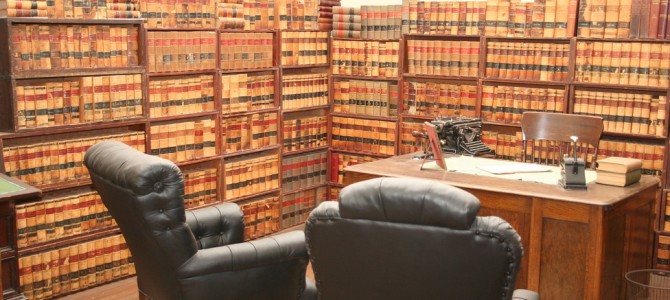On the recent article “The Power of Hidden Law” by Jonah Goldberg (peace be upon him), I must respectfully dissent. What Mr Goldberg calls “hidden law” – akin to societal norms that Justice Rehnquist termed “the history and traditions of the Nation” – is a casualty, not of lawyers and over-lawyering as Mr Goldberg suggests, but of the on-going struggle of the modern Left against the individual. In the Left’s hands, law is employed as a weaponized form of politics. Although some lawyers are certainly agents of the enemy, lawyers on the whole are not the cause of this real and accelerating assault on all civic institutions.
Lawyers understand the importance of hidden law more than most. There is a saying among lawyers in Texas that it takes an oil and gas lawyer to know that oil and gas aren’t nearly as important as water. Lawyers who handle complex matters today know that even with centuries of precedent on which to draw, the law addresses – at best – a tiny fraction of the commercial and civil legal problems that arise in a complex society. They know that the safety net provided by the rule of law isn’t a cheesecloth; it’s a dolphin-safe fishing net with holes you can walk through.
Attempts to close those holes typically involve positivist systems designed by “leading scholars” which almost inevitably facilitate the rule of judges rather than the rule of law (see, Civil Law), or oppressively bureaucratic systems where everything is prohibited unless expressly permitted (see, Soviet Union). Either way, the end result is never happy.
What P.J. O’Rourke observed about communism is generally applicable to any effort to do away with hidden law: you get either more poor people or more dead people, usually both. The modern Left loves the State and the control it affords in their endless but hopeless quest to eradicate the rough edges of human nature.
Take for example, Mr. Goldberg’s example of assisted suicide, and the lawyer-as-villain hypothesis begins to unravel. In what way do “lawyers,” as a class or interest group, benefit from the death of hidden laws about end of life? One could, perhaps, argue that they wish to move all modes of regulating society into the arena that they know, where they exercise mastery. But, (i) there is no evidence that lawyers, as a class, share this common intent, and (ii) even if they did, that’s a pretty diffuse benefit. It seems like the sort of vague world-domination goals of comic books villains. There is villainy amongst lawyers, of course, but it tends to be of the immediate self-gratification variety, and even then, disturbingly incompetent in its pursuit. (See, e.g., Edwards, John.)
The mainstreaming and legalization of assisted suicide is more explicable as the product of the Left’s intense campaign to devalue the individual and bring more decisions about life and how it is to be lived within the control of the political authority, which can be centralized and controlled in service to the Bright Progressive Future. The family, the community, the civic group, the church are all too independent, too self-sufficient, too resistant to external “guidance” from one’s betters to be tolerated; these will make “bad” decisions. Subsidiarity must be opposed.
This is our current American experience: An elite, out-of-touch governing class seeks to impose its political and economic will on a people whom it generally despises as ignorant rubes who believe in foolish ideas about personal sovereignty and who should, in the elite’s view, pay taxes and otherwise shut up. The elites are tolerated, until they begin to ignore the higher, small “c” constitutional orders of the hidden law.
This experience seems similar to political life in the Colonies in 1775. And who, back in the 18th Century, was at the forefront of the rebellion in defense of the “hidden law” that formed the rights of Englishmen? The lawyers were (see, e.g., Adams, John; Jefferson, Thomas), and they are again today. (See, Cruz, Ted.) And before anyone complains about Sen. Cruz, recall that John Adams was as reviled before Independence as he is revered today. As with employers and employment, so with lawyers and the rule of law: you can’t hate lawyers and still expect the rule of law to flourish.
In the end, it is the cause they serve that makes lawyers knaves or heroes. Shakespeare, who understood everything, understood this. In the most mis-quoted passage from the Western canon, Dick the Butcher says “The first thing we do, let’s kill all the lawyers.” Dick wanted society to break down in chaos and disorder, so that his group could take over, and he knew the lawyers would resist. As we do today.








